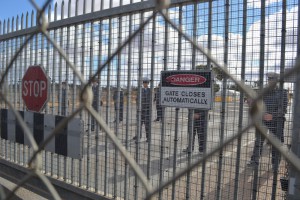The existing mine operates under the Roxby Downs Indenture Act (1982), which provides for wide-ranging exemptions from several South Australian laws, including the Aboriginal Heritage Act, the Freedom of Information Act, and the Natural Resources Management Act, which encompasses water management. It is essentially a contract between BHP and the SA Government, which over-rides key legislation in South Australia with the terms set out in the indenture agreement. These legal privileges have allowed the mine to operate without the same level of scrutiny and legal accountability as other corporations.
In 2011 the Indenture Act was amended to apply to the expansion, allowing what will be the largest uranium mine in the world, operated by a mining giant with a questionable social and environmental record, to operate under a legal contract it negotiated itself.
The scope of the new Indenture Agreement extends far beyond the Environmental Impact (EIS) and the project approval, presumably to avoid future Parliamentary scrutiny associated with further expansions. Although a further EIS may be required, once passed the Indenture Agreement is locked in for all future expansions.
The Indenture will apply to existing and future mining developments in the Olympic Dam Area, and any Special Mining Lease (SML) that may be granted within the “Additional Olympic Dam Area.”
